
NEH Summer Institute for College and University Teachers
The New Deal Era's Federal Writers' Project
History, Politics, and Legacy
July 11-August 6, 2021
APPLICATIONS ARE NOW CLOSED.

Home
APPLICATION DEADLINE EXTENDED TO FRIDAY, MARCH 5
This institute will be held virtually due to COVID-19. Although we regret not being able to meet in person, we are excited about possibilities of a virtual institute that we would not have imagined otherwise.
Project Description
Arguably the nation’s first federally funded humanities program, the New Deal’s Federal Writers’ Project (FWP) put more than 6,500 writers, teachers, secretaries, and historians back to work during the Great Depression. It boosted the careers of many American writers who got jobs as federal writers and went on to become literary luminaries, including Richard Wright, John Steinbeck, Zora Neal Hurston, Dorothy West, Studs Terkel, Sterling A. Brown, Ralph Ellison, Anzia Yezierska, and Meridel Le Sueur. The FWP also collected more than 2,000 interviews with the last generation of formerly enslaved people and nearly 3,000 interviews with immigrants, women, factory workers, farmers, and others as part of the American Life Histories series.
With these legacies in mind, the institute will trace the history, accomplishments, and cultural legacy of the FWP. The institute offers participants a unique perspective on the emergence of documentary writing, government patronage of cultural preservation, and new documentary tools, including ethnography and oral history. In setting out to “tell America’s story,” the FWP reflects what psychiatrist Robert Coles calls the “documentary impulse,” an “eagerness to catch hold of, catch sight of, to survey and inspect, to learn and then convey to others what the eyes and ears have taken in . . .” (249). Key elements of the institute will include the FWP’s cultural legacy and impact on American literature—in particular, African American literature, featuring FWP writers like Richard Wright (Illinois Writers Project and New York Writers Project), Zora Neale Hurston (Florida Writers’ Project), and Sterling Brown (FWP Editor of Negro Affairs).
This online four-week institute will take participants on virtual tours of FWP federal, state, and municipal archives, consider art that was produced under the Federal Arts Project, and dive into the documentary, historical, and literary fruits of the project, including thorny issues of representation, editorial control, and political charges leveled against the Federal Writers by the early House Un-American Activities Committee, chaired by Senator Martin Dies. We encourage applications from those eager to learn more about the FWP whether you are steeped in its history or a relative newcomer to its remarkable legacy. Open to all who fit the NEH eligibility criteria, the institute is best suited for community college, college, and university teachers across the disciplines. Archivists, independent humanities scholars, and librarians are also encouraged to apply. Five institute spaces are reserved for nontenured and nontenure-track faculty; three for advanced graduate students. Faculty at HBCUs, HSIs, and tribal colleges are strongly encouraged to apply.
The goals for participants in the Institute are the following:
- Increased knowledge of the Federal Writers’ Project’s history, accomplishments, and significance
- Increased awareness of the historical contexts that gave rise to the FWP
- Increased appreciation of the literary legacies of the FWP
- Increased ability to access and use primary source documents in teaching and research
Institute
Overview
Long Island University-Brooklyn will host a virtual four-week Summer Institute for Higher Education Faculty from July 12 to August 6, 2021 on the Federal Writers’ Project, part of the New Deal’s Works Project Administration during the Great Depression. The institute will explore the project’s history, accomplishments, and literary legacy as our country’s first government-sponsored public history program, particularly with respect to its mission to document underrepresented stories about everyday American life and its impact on African American literature. The program will accommodate 25 participants, including at least five non-tenured/non-tenure track faculty and up to three advanced graduate students. Applicants from HBCUs, HSIs, and tribal colleges are strongly encouraged to apply. This Level 1 program is being offered for the first time.
Description
The program’s focus is the Federal Writers’ Project (FWP), part of the New Deal Era’s Works Project Administration (WPA). Though less visible than the WPA projects that transformed our nation’s physical infrastructure during the Great Depression (e.g., new public buildings, parks, and roads), the FWP’s impact on American culture is difficult to overstate. An unprecedented undertaking designed to document underrepresented stories across a growing, increasingly diverse country, the FWP was “a project designed to encourage participatory citizenship” that represented a “unique, socially transformative moment” in our nation’s history (Butts 2011). One titular example of its impact is the National Endowment for the Humanities itself. According to the NEH website, the agency has “funded the telling of America’s story . . . since 1965.” Like the FWP nearly a century ago, NEH sponsors projects like “A More Perfect Union,” a recent initiative designed to “advance civic education” and “share the story of all the people.”
Significance
With these legacies in mind, the institute will trace the history, accomplishments, and cultural legacy of the FWP. The topic is significant for and relevant to humanities scholarship and teaching in offering participants a unique perspective on the emergence of documentary writing, government patronage of cultural preservation, and new documentary tools, including ethnography and oral history.
Program Design
- First, we will explore the FWP’s American Guide Series(1937-1941), a massive collection of books and pamphlets on each of the then 48 states, containing original photographs and essays on history and culture, and collectively forging what Alfred Kazin called “an extraordinary American epic.”
- Second, we will consider the American Life Histories collection, recorded by federal writers working on the Folklore Project.
- Third, we turn to Born in Slavery, the FWP’s remarkable collection of narratives of formerly enslaved people.
- Finally, we examine the project’s impact on America’s literary scene, particularly African American literature, and the public humanities.
Our Institute's Goals
Based on the FWP’s mission, history, and cultural impact, four related objectives will guide this program and be taken up successively in the corresponding weeks of the institute:
- to explore the FWP’s history and mission as a short-lived, government-funded, institution with an enduring cultural influence;
- to study diverse examples of the FWP’s output such as state guides, interviews, and life histories now accessible due to republished and digitized work;
- to utilize a resurgence of scholarship on the FWP to investigate its expansive, multivalent impact on American culture, literature, and ethnography;
- to consider and appraise examples of the FWP’s legacy in 21st century public humanities projects in light of its shortcomings and its achievements.
Project Directors
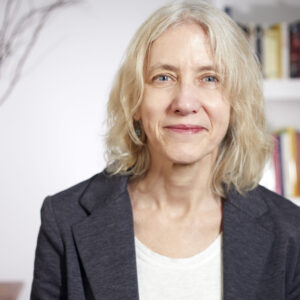
Deborah Mutnick
Deborah Mutnick is a professor of English at Long Island University’s Brooklyn campus. She is author of Writing in an Alien World: Basic Writing and the Struggle for Equality in Higher Education (Boyton/Cook 1996). Her work has appeared in journals, including College English, College Composition and Communication, Rhetoric Review, and Community Literacy Journal, as well as several edited volumes. Publications on the Federal Writers’ Project and the literary left include “Toward a Twenty-First Century Federal Writers’ Project” (College English 77.1, 2014) and “Write. Persist. Struggle”: Sponsors of Writing and Workers’ Education in the 1930” (Community Literacy Journal 11.1, 2016). She is currently working on a monograph, Richard Wright’s America: Yearning for What Never Was, and an edited volume on urban sustainability.

Shannon Carter
Shannon Carter is professor of English at Texas A&M University-Commerce. She is author of The Way Literacy Lives: Rhetorical Dexterity and “Basic” Writing (State University of New York Press, 2008), and articles in College English, College Composition and Communication, Kairos, Community Literacy Journal, Journal of Basic Writing. She’s currently working on two book projects: (1) Enacting Vernacular Inquiry in Uncertain Times, with co-authors Elenore Long and Bethany Clerico and (under review at WAC Clearinghouse) and (2) White Texas: Writing “The South’s Most Democratic College,” 1889-1975, a single-authored rhetorical history about white working-class racism (W.E.B. DuBois’s “compensatory whiteness”) and Black resistance in her rural university town.
Together, Shannon and Deborah founded Writing Democracy, an initiative inspired by the Federal Writers’ Project that started with a conference at Texas A&M University Commerce in March 2011. In 2012, they coedited a special issue of Community Literacy Journal based on conference proceedings from that event, which won the “Best Public Intellectual Special Issue” from the Council of Learned Journals. Following a series of annual, national workshops, this project culminated in an edited collection Steve Parks and Jessica Pauszek called Writing Democracy: The Political Turn in and Beyond the Trump Era (Routledge Press, 2019).
Visiting Scholars

Jerrold Hirsch
Jerrold Hirsch, Professor Emeritus of History at Truman State University, Kirksville, Missouri, is co-editor with Tom Terrill of Such as Us: Southern Voices of the Thirties (1978), a collection of previously unpublished FWP southern life histories, author of Portrait of America: A Cultural History of the Federal Writers’ Project (2003), and co-editor with Larry Rogers, of America’s Folklorist: B. A. Botkin and American Culture (2010). He has published numerous articles on the FWP, the history of American folklore studies, oral history, and disability history in journals, chapters in edited books, and as introductions to books. He is currently working on a study of the creative folklore and writing projects of the FWP and on a biography of B. A. Botkin. New directions in his work are reflected in his recent essays, “Federal Writers’ Project,” in Ichiro Takayoshi ed., American Literature in Transition, 1930-1940 and “B. A. Botkin,” http://methods.sagepub.com/foundations
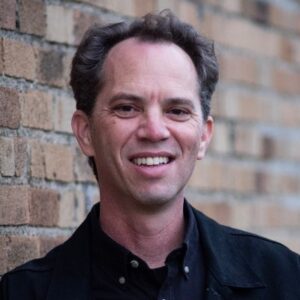
Brian Dolinar
Dr. Brian Dolinar is an independent scholar living in Urbana, Illinois. He is author of The Black Cultural Front: Black Writers and Artists of the Depression Generation (University Press of Mississippi, 2012) and editor of The Negro in Illinois: The WPA Papers(University of Illinois Press, 2013). He has taught history and African American Studies at the University of Illinois at Urbana-Champaign.
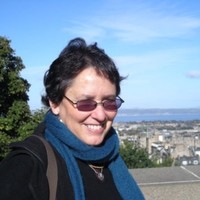
Susan Rubenstein DeMasi
Susan Rubenstein DeMasi is the author of Henry Alsberg: The Driving Force of the New Deal Federal Writers’ Project (McFarland & Company 2016), as well as a screenwriter, playwright, and freelance journalist. She’s presented on the topic of the Federal Writers’ Project at various libraries, universities and other venues, including the Franklin D. Roosevelt Presidential Museum and the University of California at Berkeley. She’s served as a research associate for the Living New Deal (livingnewdeal.org) since 2017. Her dramatic writing includes the WPA-themed documentary play, Ten Thousand Stories, produced for both the stage and radio (starring Simon Jones). An adjunct librarian at Suffolk County Community College in New York, DeMasi has written for The New York Times and other publications, and is currently at work on an essay for an upcoming book on the Writers’ Project to be published by the University of Massachusetts Press.
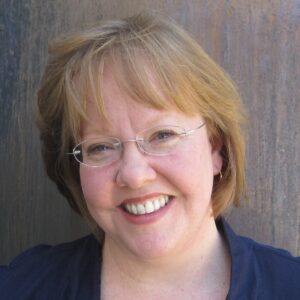
Catherine Stewart
Catherine A. Stewart is Professor of History at Cornell College in Mount Vernon, Iowa, where she teaches courses in late nineteenth and twentieth-century U.S. social and cultural history, such as the Documentary Imagination during the Great Depression, Public Memory and Public History, Work and Leisure in Modern America, Reel History: The Cold War and American Film, and African American Autobiography and Film. Her research interests include the New Deal, African American writers, public memory, film, and the politics of textual and visual representation. She received her Ph.D. from the State University of New York at Stony Brook. Her first book, Long Past Slavery: Representing Race in the Federal Writers’ Project (University of North Carolina Press, 2016), was selected as an Outstanding Academic Title by Choice magazine. She has presented her work at the annual meetings of the Organization of American Historians, the Northeast Modern Languages Association, the American Association for the History of Medicine, and the University of Houston’s Black History Workshop. Her work has appeared in American Quarterly, Labor: Studies in Working-Class History, and Civil War History, and an article is forthcoming in the Journal of American History. She is contributing a chapter on the non-fiction essays of Ann Petry, Ralph Ellison, Richard Wright, and Zora Neale Hurston for the Cambridge University Press series, African American Literature in Transition, 1750-2015, edited by Joycelyn Moody. She is currently working on her next book on African American women and household labor during the Great Depression, for which she was awarded a National Endowment for the Humanities Fellowship.

Stephanie E. Jones-Rogers is an associate professor of history at the University of California, Berkeley, and the author of They Were Her Property: White Women as Slave Owners in the American South. Her research focuses primarily upon gender and American slavery, but I am equally fascinated with colonial and 19th century legal and economic history, especially as it pertains to women, systems of bondage, and the slave trade.
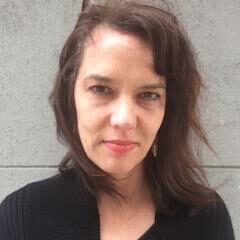
Sara Rutkowski is an Assistant Professor of English at the City University of New York: Kingsborough Community College. She is the author of The Literary Legacies of the Federal Writers’ Project: Voices of the Depression in the American Postwar Era (Palgrave, 2017), and has also published work on postwar American writers and the cultural and political contexts of twentieth century global literature. She is currently at work editing a collection of essays that showcases a range of new research and scholarship on the FWP.
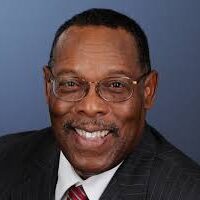
John Edgar Tidwell is Professor Emeritus of English at the University of Kansas. He describes his work this way: “When I looked back on my career, I discovered that my teaching often intersected with my research, thus enabling one to shape and inform the other. It is in this spirit that I considered American literature indispensable in contextualizing African American literature. Neither could be studied in isolation. Both provided a fuller discussion of the other. Over the years, I have conducted considerable research into Sterling A. Brown, Frank Marshall Davis, and Langston Hughes—all poets who were pivotal figures in the history of African American writing. Much of what I have published has been foundational scholarship, restoring and extending these powerful voices to current discussions of African American and American cultural expression.” Among his several publications are After Winter: The Art and Life of Sterling A. Brown, Writings of Frank Marshall Davis: A Voice of the Black Press, and Montage of a Dream: The Art and Life of Langston Hughes.

Betsy Bowen is a professor of English and director of the writing center at Fairfield University. Her research in community literacy, English Education, and women and literacy have been published in journals including Community Literacy Journal, Business Communication Quarterly, English Education, and Journal of Adult and Adolescent Literacy. She has led professional development workshops for teachers of English in Russia and Kyrgyzstan. In 2010, she was select by the Carnegie Foundation for Advancement of Teaching as its Connecticut Professor of the Year. At this institute, she will discuss her ongoing digital humanities project called “Writing Freedom,” which features student research focusing on acts of literacy described by ex-slaves in FWP’s “Born in Slavery” collection.

David Jolliffe
David Jolliffe is Professor Emeritus of English at the University of Arkansas, where he was the initial occupant of the Brown Chair in English Literacy. He earned a B.A. in English, magna cum laude, from Bethany College in 1974; an M.A. in English from West Virginia University in 1980; and a Ph.D. in English from the University of Texas in 1984. A native of New Martinsville, West Virginia, Jolliffe began his career as an educator at Triadelphia High School and then at Wheeling Park High School, where he taught both English and theatre. Jolliffe has also taught at West Virginia University, Bethany, the University of Texas, the University of Illinois at Chicago, and DePaul University. At the University of Illinois at Chicago, he served as the Director of Composition, Director of the Writing Center, and Director of Writing in the Disciplines in the College of Liberal Arts and Sciences. At DePaul, he was Director of Writing Programs for one year before becoming the initial Director of the Interdisciplinary First-Year Program. He moved to Fayetteville in 2005 to inaugurate the work of the Brown Chair, whose mission is to promote critical and effective literacy among Arkansans in all walks of life.
The author or editor of 14 books and more than 40 articles on the history and theory of rhetoric, the teaching of writing, and the preparation of writing teachers—most recently The Arkansas Delta Oral History Project: Culture, Place, and Authenticity, published by Syracuse University Press—Jolliffe has always connected his work to the arts, particularly to theatre. His office sponsored a program called SISTA (Students Involved in Sustaining Their Arkansas), which linked Arkansas High School students with University of Arkansas mentors as both parties develop proposals for community sustainability projects, and the Arkansas Studio Project, which offered arts-infused literacy-enrichment activities in secondary schools in Springdale, Arkansas. He acts regularly with The Classical Edge Theatre Company, which offers free, outdoor productions of William Shakespeare’s works in Northwest Arkansas and throughout the state, and with the Northwest Arkansas Prison Story Project, which develops and performs original plays based on the writing of incarcerated inmates. Recently, he initiated the Latin/x Youth Theatre Project and produced a new play called FOLLOW ME@TIO SAM.

Laurie Grobman
Dr. Laurie Grobman, a professor of English and women’s studies at Penn State Berks, has been involved with community writing for 20 years. Primary among this work is the facilitation of community-engaged scholarship and pedagogy to (re)write local histories of marginalized ethnic, racial, socioeconomic and cultural communities in Berks County and the city of Reading in Pennsylvania (see https://sites.psu.edu/localhistories/). Laurie has published several articles that address various ethical challenges emerging from community-engaged pedagogy focused on antiracism in such venues as CCC and College English. She has coauthored two articles with undergraduates: “Collaborative Complexities: Co-Authorship, Voice, and African American Rhetoric in Oral History Community Literacy Projects” (Community Literacy Journal, 2015) and “Counternarratives: Community Writing and Anti-Racist Rhetoric” (Reflections: A Journal of Public Rhetoric, Civic Writing, and Service-Learning, 2017). Laurie’s article, “‘Engaging Race’: Critical Race Inquiry and Community-Engaged Scholarship,” received the 2018 NCTE Richard C. Ohmann Outstanding Article in College English Award.
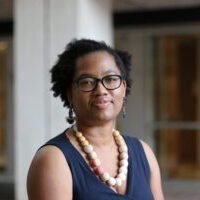
Candace Epps-Robertson
Dr. Candace Epps-Robertson is an assistant professor of English at the University of North Carolina at Chapel Hill, where she currently holds the inaugural Jonathan M. Hess Term Professorship. She researches, writes, and teaches about rhetoric, literacy, and writing studies. Her primary research investigates how communities teach, practice, and understand what it means to be a citizen. Her first book, Resisting Brown (Pittsburgh, 2018), examined a free school's approach to teaching literacy and citizenship during the American Civil Rights Movement. She is currently working on several projects that creatively connect her interests in literacy, rhetoric, citizenship, and pedagogy. Her second project examines conceptions of global citizenship through transcultural fandom experiences in the BTS ARMY fandom.
Schedule
Click here for pdf version of schedule
Related Resources (bibliography, collections, libraries):
Bibliography (required and recommended reading)
How To Apply
Dear Colleagues,
We invite you to apply to our 4-week NEH Summer Institute for College and University Teachers on the legacy of the 1930s Federal Writers’ Project (FWP).
Given the uncertainties of COVID-19 spread in 2021, we have decided to hold the institute virtually. While we wish we could meet in physical spaces with all of their obvious benefits, we believe this topic lends itself to virtual engagement and are excited about increased access to participants, virtual visits with museums, archives, and other sites of interest, and the sheer energy of collectively generating new forms of communication, collaboration, and dissemination. Please read the following information carefully and let us know if you have any questions. We look forward to receiving your application!
Yours,
Deborah Mutnick (LIU Brooklyn)
Shannon Carter (Texas A&M Commerce)
PURPOSE OF PROGRAM
NEH Summer Seminars and Institutes allow university, college, and community college faculty an opportunity to enrich and revitalize their teaching through the study of humanities topics that bear upon undergraduate education.
For this 4-week institute, we are accepting 25 participants to study the history, accomplishments, and cultural legacy of the FWP. Though less visible than other New Deal projects that transformed our nation’s physical infrastructure during the Great Depression (e.g., new public buildings, parks, and roads), the FWP had a powerful impact on American culture. Designed to document underrepresented stories across an increasingly diverse country, the FWP was “a project designed to encourage participatory citizenship” that represented a “unique, socially transformative moment” in our nation’s history (Butts 2011). Participants, project leaders, and a team of experienced guest scholars will mutually explore connections between scholarship and teaching, leaving ample time for work on individual or collaborative projects.
STIPEND, TENURE, AND CONDITIONS OF AWARD
Participants will receive a taxable stipend of $3,450 for participation in the project. Because this institute will be virtual, the stipend, normally used to help cover travel expenses, may be used to support participation in other ways, such as childcare, enhanced internet connectivity, or other technical support necessary for full participation. Half will be paid at the beginning of the Institute and half at the end. The full amount of Institute hours must be completed in order to receive the full stipend. Stipends are taxable as income.
Participants are expected to attend all meetings and engage fully as professionals in the work of the project. During the project, participants may not undertake teaching assignments or professional activities unrelated to their participation in the project. Those who, for any reason, do not complete the full tenure of the project will receive a reduced stipend.
ELIGIBILITY
Participant eligibility criteria are determined by NEH (please see “Participant Eligibility Criteria” below).
In any given year, an individual may apply to a maximum of two Seminars or Institutes, but may attend only one.
SELECTION CRITERIA
A selection committee, comprised of the project co-directors and two FWP scholars, will evaluate all complete applications to select a group of participants and identify alternates. They will consider:
-
-
- your effectiveness and commitment as a teacher/educator;
- your intellectual interests and pursuits as they relate to the topic of the institute;
- your perspectives, skills, or experiences that will contribute to the program;
- evidence that your participation will have a long-term impact on your teaching
-
Categories of preference:
-
-
- five institute spaces reserved for non-tenured/non-tenure track faculty
- three spaces reserved for advanced graduate students
- primary consideration given to those who have not previously attended an NEH Summer Seminar or Institute.
- HBCU, HSI, and tribal college faculty strongly encouraged to apply
- Among equally qualified candidates, preference given to those who would enhance the diversity of the program
-
APPLICATION INSTRUCTIONS
Prior to applying to a specific seminar or institute, please study the project website and carefully consider the project’s requirements. A complete application consists of the following items:
-
- A Résumé or Curriculum Vitae (Not to exceed five pages)
- The Application Essay
The application essay should be 3-4 double spaced pages. It should address your interest in the subject to be studied; qualifications and experiences that equip you to do the work of the Institute and to make a contribution to the learning community; a statement of what you want to accomplish by participating; and, if appropriate, a description of a relevant, independent project in relation to the Institute topic and your professional responsibilities.
SUBMISSION OF APPLICATIONS AND NOTIFICATION PROCEDURE
APPLICATION DEADLINE EXTENDED TO FRIDAY, MARCH 5
Applications must be submitted to the project directors, not the NEH, no later than March 1, 2021. Applications sent to the NEH will not be reviewed.
Send your application to: Deborah Mutnick via our online submission form:
Successful applicants will be notified of their selection on Friday, March 26, 2021. They will have until Friday, April 2, 2021 to accept or decline the offer. Followup acceptance documents must be returned by April 15. After this date, we will fill any open spots with alternates.
Note: Once you have accepted an offer to attend any NEH Summer Program (NEH Summer Seminar or Institute), you may not accept an additional offer or withdraw in order to accept a different offer.
Equal Opportunity Statement
Endowment programs do not discriminate on the basis of race, color, national origin, religion, sexual orientation, disability, or age. For further information, write to the Equal Opportunity Officer, National Endowment for the Humanities, 400 7th Street, SW, Washington, DC 20024.
TDD: 202-606-8282 (this is a special telephone device for the Deaf).
Participant Eligibility Criteria
Any views, findings, conclusions, or recommendations expressed in this institute do not necessarily represent those of the National Endowment for the Humanities.